Investigate

Learning goal: Critical thinking
Critical thinking skills development is a significant factor in classroom, college, and career success. Help your students develop these essential critical thinking skills using the FutureFit resources collected under the “Investigate” domain. Skills highlighted in this domain include inquisitiveness, information literacy, data synthesis, and pattern recognition.
At the practical level, Investigate focuses on skills and abilities that blend well with both core academic concepts and broader social-emotional learning goals articulated by standards organizations, states, and researchers. We’ve meshed the best and most relevant concepts and approaches into an accessible list of skills that is easy to understand and articulate to students, including:
- Information literacy: The ability to quickly and effectively determine what information is needed, where to find it, and how to evaluate, apply and communicate it
- Data synthesis: The ability to quickly and effectively evaluate data from various sources and use it to provide actionable insight
- Pattern recognition: The ability to quickly and effectively discern patterns in data, information, processes, etc. and model those patterns to produce solutions to disparate or tangential problems
- Bias awareness: The ability to honestly perceive one's own biases, stereotypes, and prejudices when developing information, patterns, models, tropes or solutions
- Inquisitiveness: The ability - rooted in an eagerness for knowledge - to objectively and broadly ask questions purely to satisfy curiosity
Recommended Investigate Resources
-
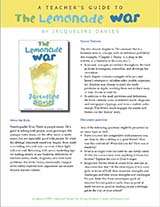
WORKSHEETS
The Lemonade War Teacher's Guide
Encourage the development of students' entrepreneurial skills with the economics and math activities in this teacher's g... -
LESSON PLANS
Why Do Some Objects Fall Faster Than Others?
Put Galileo's theories to the test with bricks and feathers! Introduce your pupils to the fundamentals of gravity with ... -
LESSON PLANS
Which Metal Corrodes the Fastest?
Time-lapse experiment that's great for a unit on states of matter Students test a variety of metals in water and salt w... -
LESSON PLANS
Do Objects Float Better in Salt Water Than in Fresh Water?
Will a bottlecap really float in salt water?Students will learn about density and surface tension with this printable sc... -
LESSON PLANS
Salt or Sugar: Which Dissolves Faster in Different Liquids?
Easy and fun hands-on chemistry experiment Students learn about molecules and solutions with this hands-on science acti... -

TEACHING RESOURCE
Analyzing Data
Help your students learn a critical 21st Century skill Data analysis is the process of interpreting the meaning of the ... -
LESSON PLANS
In Which Liquids Do Seeds Grow Best?
Green thumbs for everyone! Teach your pupils about horticulture and hydroponics with this hands-on printable science ac... -
_0.jpg)
LESSON
Easily Integrate SEL Into Your Existing Curriculum
Looking for ways to incorporate social-emotional learning, character education, and life skills into your traditional ac... -
LESSON PLANS
Does It Matter How Much Air Is in Your Basketball?
Help students get a "handle" on understanding air pressure Students observe how different levels of air pressure affect... -
LESSON PLANS
What Materials Conduct Static Electricity Best?
Learn about electricity in this "shocking" science experiment! In this hands-on science project, pupils build their own... -
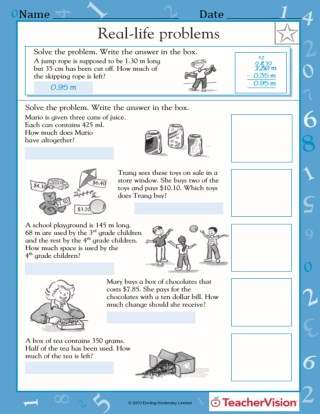
WORKSHEETS
Multiplication and Division Word Problems III
These real-life word problems involving units of measure and money require children to multiply or divide to find the so... -
LESSON PLANS
What Foods Attract Ants?
A creepy-crawly science project with legs! Students learn about ants and how they are able to locate food with this pri... -
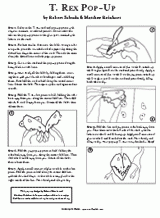
WORKSHEETS
T. Rex Pop-Up Activity
-
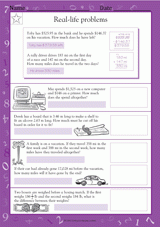
WORKSHEETS
Addition & Subtraction Word Problems I
Use these word problems to give students practice adding and subtracting money and units of measure. Students will add o... -
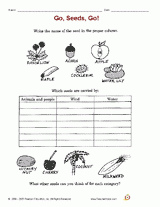
WORKSHEETS
Go, Seeds, Go!
-
LESSON PLANS
Can Cloning Make a Better Plant?
Teach your students about cloning with this hands-on science activity. Students clone plants through leaf cutting, buddi... -
LESSON PLANS
How Can Different Polymers Be Identified?
One word: Plastics Students study six types of plastic and make comparisons between them based on their physical and ch... -
LESSON PLANS
Are All Pennies Created Equal?
A penny saved is a...penny that's no longer a penny?! Teach your students about the chemical compounds within a penny w... -
ACTIVITIES
The Sweetest Experiment – Chocolate and Solvents
Pupils love this sweet activity! They learn about solvents by timing how quickly chocolate dissolves in their mouth when... -
LESSON PLANS
Survey About Conflict and Me
-
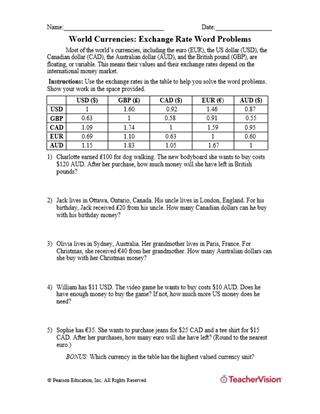
WORKSHEETS
World Currencies: Exchange Rate Word Problems
Word problems for USD, GBP, EUR, CDN, and more Give pupils practice interpreting tables and exchanging money from one c...


